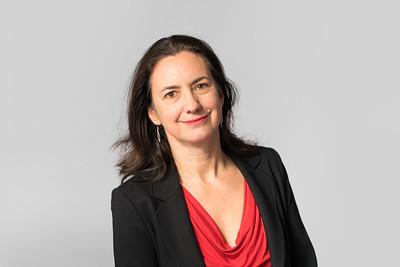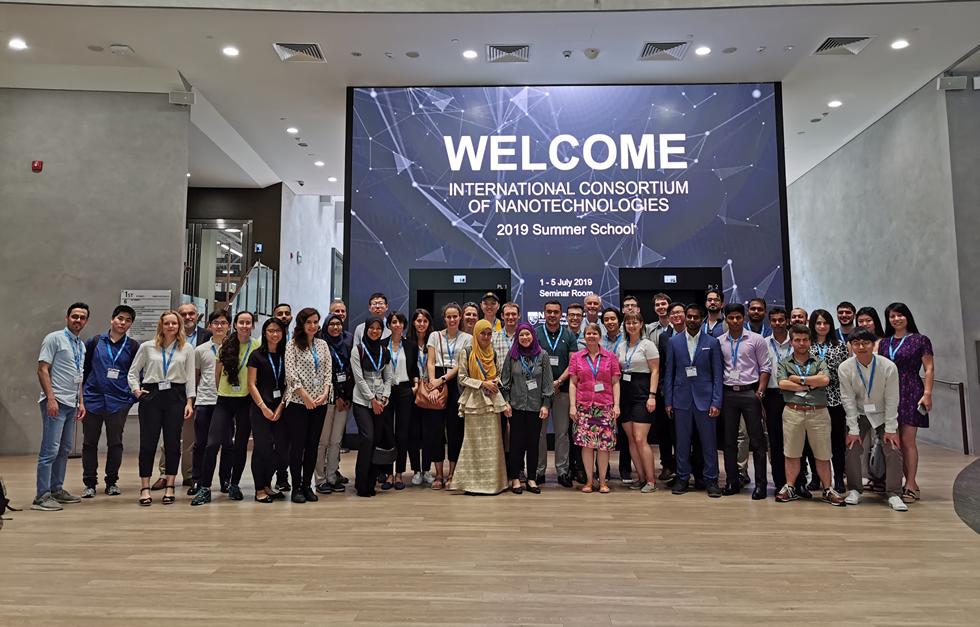International Consortium of Nanotechnologies – a unique model for global collaboration

The International Consortium of Nanotechnologies (ICoN) is a global network funded by Lloyd’s Register Foundation for building capacity and knowledge in the application of nanotechnologies to support safety of life and property.
Led by Professor Themis Prodromakis at the University of Southampton, ICoN has provided a unique model for international collaboration, successfully engaging over 200 individuals, 40 companies and 51 PhD students across 16 countries, facilitating world-leading research and delivering outreach activities for promoting STEM amongst youngsters.
The Consortium will soon expand its reach in unrepresented regions of Africa and South America that will allow it to enhance engagement with a diverse range of partners.
Dr Ruth Boumphrey, Director of Research and Strategic Programmes for the Lloyd’s Register Foundation, discusses ICoN’s mission, reach and partnership with the University of Southampton.
Q: Please tell us about the work with ICoN. What has ICoN enabled the Foundation to do?
A: The Lloyd’s Register Foundation started in 2012 so is a relatively young Foundation but our heritage comes from Lloyd’s Register our global company which is over 260-years old. It looks at different themes and with a Foresight review on nanotechnology opened an international call to those interested in the journey towards safety. This is the Foundation’s mission: to protect the safety of life and property.
With over 40 responses to that call – including from a Nobel Prize winner and a well-renown government Chief Scientist – the ICoN proposal from the University of Southampton’s Professor Themis Prodromakis stood out. Here was an approach that really took on the global perspective of the endeavour, proposing a model that we’d never seen before. Basically, there’s a global cohort of PhD researchers who grow and learn together across international boundaries. It was this international outlook and vision, even at the Early Career Researcher stage, which was notable, as well as the strong partnerships with institutions in Malaysia, USA and Germany. The £3million fund awarded ICoN was distributed in a way that grew it, with match-funding calls put out for researchers worldwide. Part of the fund is put aside for the PhD students to come together annually and a fantastic community has been created, a network of the young at heart engaging them in their studies and reaching out to schools. ICoN is a flagship programme that puts the opportunity out there and the network that has been built provides far greater reach for the Foundation.
Q: How has ICoN impacted the Foundation’s reach?
A: The ICoN programme combined capacity-building and science and has enabled us to use new models and have worldwide reach: when we look at where the countries where the foundation operates, ICON is in about half of them so it represents a large part of our international footprint. The Foundation is quite small and we rely on our partners, who we support and fund to take our message out. Therefore, we need well-edited content, reports in on time and well-arranged meetings and at the centre of ICoN are two people: Themis Prodromakis and Angela Westley who really get it. They are at the centre of organising this network and they care about the people involved. We’ve tried to replicate this in other programmes but Themis’ is the best so far, how he has managed and led the international network. Moreover, he is active on social media, following and amplifying what we do: keeping the world safe.
It’s a symbiotic relationship; being part of Themis’ success is also our success.
Q: Why did you partner with Southampton?
A: The Foundation has a long-standing relationship with the University of Southampton in maritime excellence. With this new angle in nanotechnology, Professor Prodromakis went to the leadership team for support and it was this buy-in that was critical. The individual is also critical and here we have someone who is not imperialistic about research and, rather, shows humility, recognising talent lies everywhere and is on a quest for this.
The institution has to prove itself with financial support and with high quality individuals who are critically important to science. At the University of Southampton we found this combination, with people who can listen, engage and are very collaborative, with a modern outlook for frictionless interaction.
Q: How would you recommend potential partners go about working with the Lloyd’s Register Foundation?
A: The Foundation has a distinctive mission and limited money. We need to ensure what we do is impactful; we are not replicating research councils or other foundations. So we are looking for people who can innovate – by working with them. We like to be “wow-ed”. We’re seeking a truly international outlook because all parts of the world are facing problems that we can help with. We can help advance your mission by working with us.
Q: So what’s next? What about your interest for international engagement?
A: At the Foundation we are trying to prioritize the big safety challenges, we are challenge-led. Being safer at sea. Safety of food as systems become more engineered – packaging, production, and transportation. Safety of digital: new robotic systems. The critical infrastructure: 4% of world GDP goes on fixing corrosion and pipework, repairing things that are falling down, so we need to keep on top of the maintenance. Where new cities and populations are growing faster are where more demands on infrastructure are made – in SE Asia, Africa – can we head off this corrosion in the decades to come? There is a risk inherent in the growing statistic of world population under the age of 25 since safety comes from experience, from your elders so we are in a place where we need to enable young people with tools for safety.
